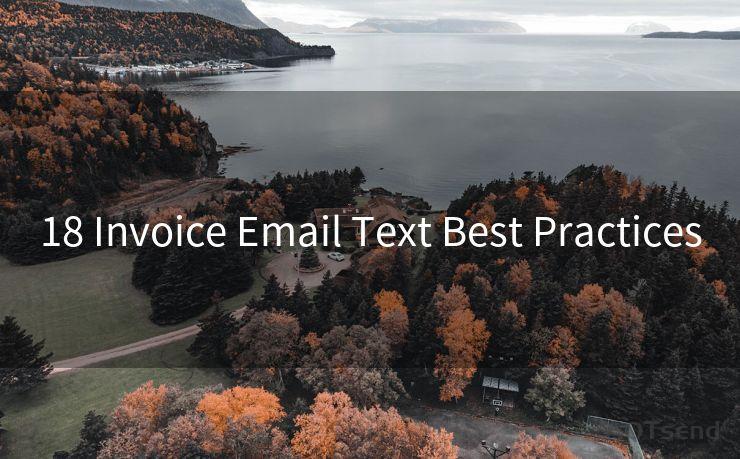18 Invoice Email Text Best Practices




When it comes to sending invoices via email, clear and professional communication is key. Here are 18 best practices for crafting invoice email text that ensures efficiency, clarity, and politeness.
1. Subject Line Clarity
Start with a clear and concise subject line that immediately identifies the email as containing an invoice. For example, “Invoice #12345 for Project XYZ.”
2. Greeting and Introduction
Begin the email with a formal greeting, addressing the recipient by name if possible. Briefly introduce the purpose of the email, which is to provide the invoice for services rendered or products delivered.
3. Invoice Details
Provide all the pertinent invoice details, including the invoice number, date, and the services or products included. Attach the invoice file for easy reference.
4. Payment Terms and Conditions
Clearly state the payment terms, including the due date, payment method, and any late payment penalties or interest charges that may apply.
5. Itemized List of Services/Products
Include an itemized list of the services provided or products delivered, along with their respective costs. This ensures transparency and helps the client understand the charges.
6. Discounts and Promotions
If any discounts or promotions were applied, mention them in the email and explain how they were calculated.
7. Tax Information
If taxes are applicable, provide details on the tax rate and the amount charged. Also, include any relevant tax identification numbers.
8. Contact Information
Provide your contact information in case the client has any questions or concerns about the invoice.
9. Thank You Note
End the email with a thank you note for the client’s business, expressing appreciation for their payment and looking forward to future collaborations.
10. Professional Tone
🔔🔔🔔
【AOTsend Email API】:AOTsend is a Managed Email Service for sending transactional emails. Support Email Types: reminders, authentication, confirmations, notifications, verification codes, invoices, password resets, account activations, billing statements, two-factor authentication (2FA), and one-time passwords (OTP) emails, etc. $0.28 per 1000 Emails. 99% Delivery, 98% Inbox Rate.
You might be interested in:
Why did we start the AOTsend project, Brand Story?
What is a Managed Email API, How it Works?
Best 25+ Email Marketing Platforms (Authority,Keywords&Traffic Comparison)
Best 24+ Email Marketing Service (Price, Pros&Cons Comparison)
Email APIs vs SMTP: How they Works, Any Difference?
Maintain a professional tone throughout the email, avoiding colloquial or informal language.
11. Accuracy Check
Before sending, double-check all the information in the invoice and email for accuracy, including dates, amounts, and descriptions.
12. Avoid Unnecessary Details
Keep the email focused and concise, avoiding unnecessary details that may distract from the main message.
13. Use Templates
For consistency and efficiency, consider using an invoice email template that can be customized for each client.
14. Follow Up
If payment is not received by the due date, send a polite follow-up email to inquire about the status of the payment.
15. Provide Multiple Payment Options
Offer multiple payment methods to accommodate different client preferences and needs.
16. Secure Payment Links
If possible, provide secure online payment links for convenient and safe transactions.

17. Record Keeping
Maintain records of all invoice emails sent and payments received for easy tracking and reference.
18. Legal Compliance
Ensure that your invoice emails comply with relevant legal requirements, such as including necessary tax information and disclaimers.
By following these 18 best practices, you can ensure that your invoice emails are professional, clear, and effective, leading to smoother payment processes and stronger client relationships.




Scan the QR code to access on your mobile device.
Copyright notice: This article is published by AotSend. Reproduction requires attribution.
Article Link:https://www.mailwot.com/p4769.html



